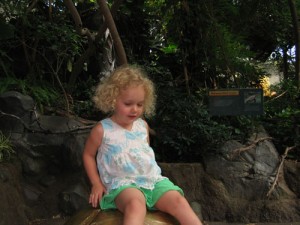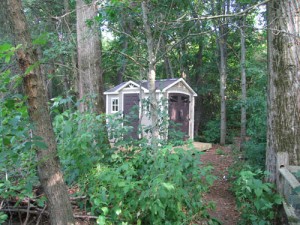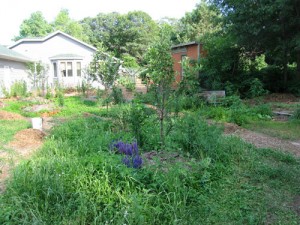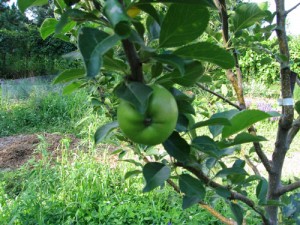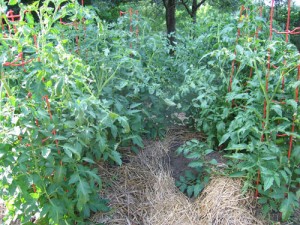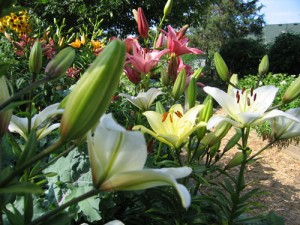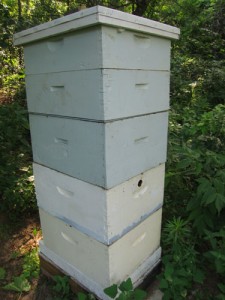Summer Waning Summer Moon
Weeds. Weeds, by definition, are a plant out of place. This is, if you think about it, a curious definition. Why? Because the hardiness and persistence of most weeds indicate that it may be everything else in the garden that is out of place. So, we may have to admit that the true definition is anthropocentric one. Weeds are plants out of place in the horticultural preserves we call gardens and landscaping.
An article in the Scientific American got me thinking about this, as did this mornings work removing quack grass and other hardy locals from the clover in our orchard. The Scientific American article has the provocative subtitle: The Real Price of Flowers. The underlying message is this: plant what grows where you live. This means you will have much fewer energy inputs than if you maintain out of zone plants. Most experienced gardeners know this, though some pride themselves on their ability to grow out of zone plants. Here the trick is to get them to survive our tough winters.
The Minnesota Zoo, when it began, had a similar zoological mission: contain animals that live in the climate of the 45th latitude. They had (and have) a smaller tropical indoor exhibit that includes Komodo dragons, Gibbons, Tapirs and Toucans, for example, plus a coral reef, but in the main they have native Minnesota animals: moose, wolves, beavers, wall-eye, muskie, pileated woodpeckers. There are also many that thrive in our climate: pumas, wolverines, lynx, otters, fishers, musk ox, Amur tigers, grizzly bears, snow leopards, sea otters. I say had because it now has a summer African exhibit and I wish it didn’t because I like the original mission.
Permaculture attempts to take this general notion and apply it to our horticultural and agricultural practices. That is, permaculture emphasizes plants that work together, that live in the climate, soil type, eco-system native to the location of the garden or farm. This allows the least outside inputs like fertilizer, pesticides, even tilling and other mechanical techniques.
We need to know more about the plants we call weeds. After all, they live here, too.

